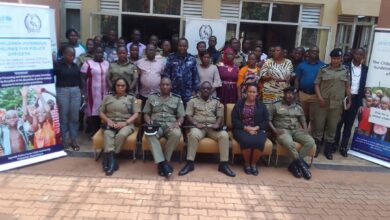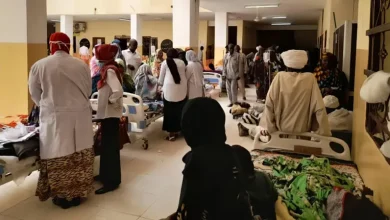TRIDI Hosts year one review meeting for sweet sorghum hybrids climate change adaptation project
The project demonstrates significant potential for enhancing agricultural sustainability, food security, and technological advancement in Sub-Saharan Africa.
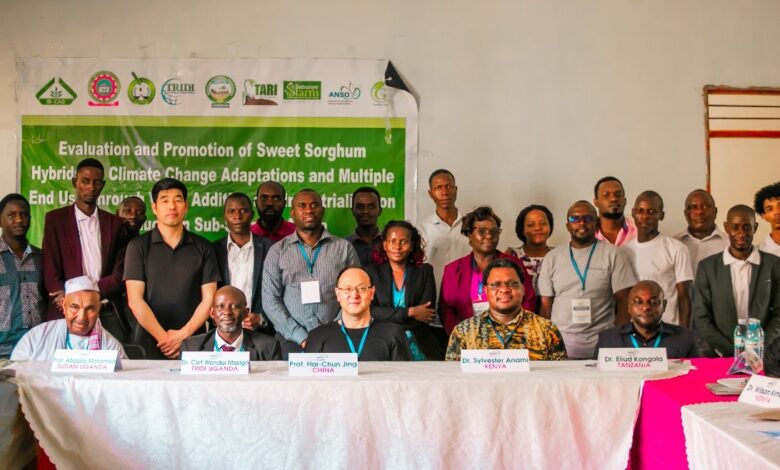
Kampala: The Alliance of International Science Organizations (ANSO) successfully hosted the Year One Review Meeting for the “Evaluation of Sweet Sorghum Hybrids for Climate Change Adaptation and Multiple End Use” project at the Tropical Institute of Development Innovations (TRIDI) in Uganda from February 1-6, 2025.
The event was attended by esteemed researchers, academics, and agricultural experts from Uganda, Kenya, Tanzania, Sudan, and China.
In his welcome remarks, Dr. Clet Wandui Masiga, TRIDI’s lead researcher, expressed enthusiastic commitment to advancing technological innovations that can benefit African agriculture. “Our goal is to develop advanced materials and technologies that can transform agricultural resilience across the continent,” Dr. Masiga stated.
Key highlights included multinational research collaboration between African and Chinese scientists, comprehensive evaluation of sweet sorghum hybrids for climate adaptation, and strategic discussions on technology transfer and agricultural innovation.
Notable contributions included presentations by Prof. Hai Chun Jing (Chinese Academy of Sciences) who showcased promising technology transfer strategies; Prof. Abdalla Mohammad (Agricultural Research Corporation) who provided critical insights into Striga resistance genomics; and Dr. Sylvester Anami (Jomo Kenyatta University of Agriculture and Technology) who presented the project’s status and potential impacts.
The project’s principal investigator, Dr. Sylvester Anami, provided a comprehensive overview of the project’s current status and potential impacts. Dr. Anami highlighted the significant progress made in evaluating sweet sorghum hybrids, emphasizing the importance of this initiative for climate change adaptation and value addition in Sub-Saharan Africa.
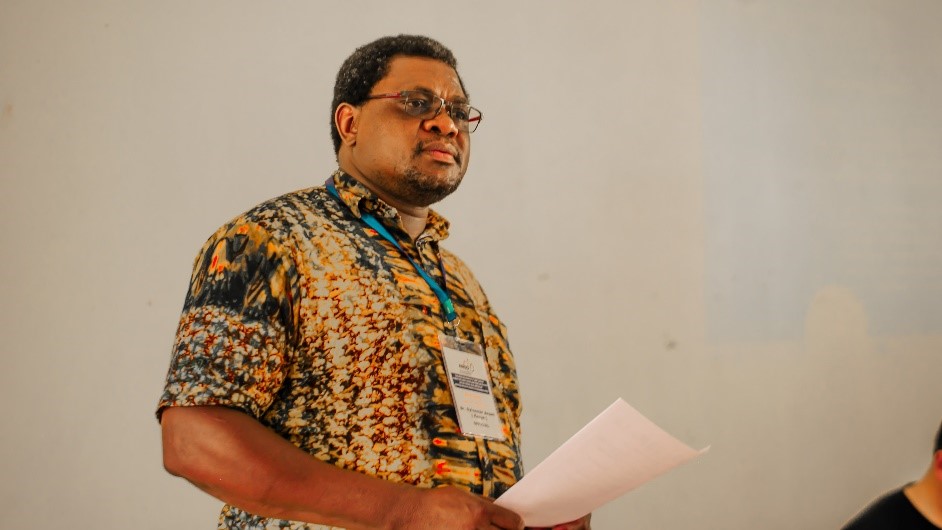
Prof. Hai Chun Jing, from the Institute of Botany, Chinese Academy of Sciences, presented details on the development and transfer of sorghum technologies from China to Africa, showcasing the promising prospects of integrating advanced agricultural technologies into the region.
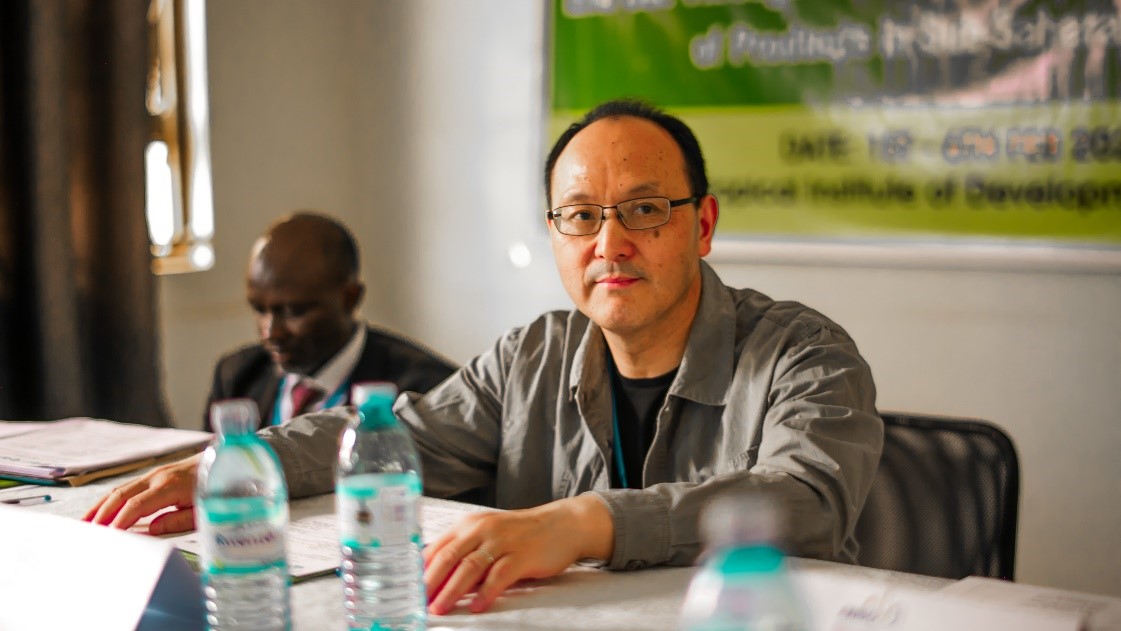
Prof. Anne Sande, from Chuka University, presented an insightful overview of sorghum utilization and the field socio-economic survey findings in Kenya. Her findings shed light on the potential of sorghum to improve local livelihoods and food security.
Country-specific evaluations were presented by the following experts: Dr. Wilson Kimani (CornGro Limited) and Mrs. Joan Cherotich from Jomo Kenyatta University of Agriculture and Technology (JKUAT) provided an update on Kenya’s hybrid evaluations; Dr. Eliud Kongola from the Tanzania Agricultural Research Institute (TARI) shared insights into the evaluations conducted in Tanzania; In Uganda, Dr. Ronald Kakeeto from NARO-NaSARRI and Dr. Clet Wandui Masiga from TRIDI presented the Ugandan evaluation findings. Prof. Abdalla Mohammad from the Agricultural Research Corporation (ARC) gave an update on Sudan’s evaluation.
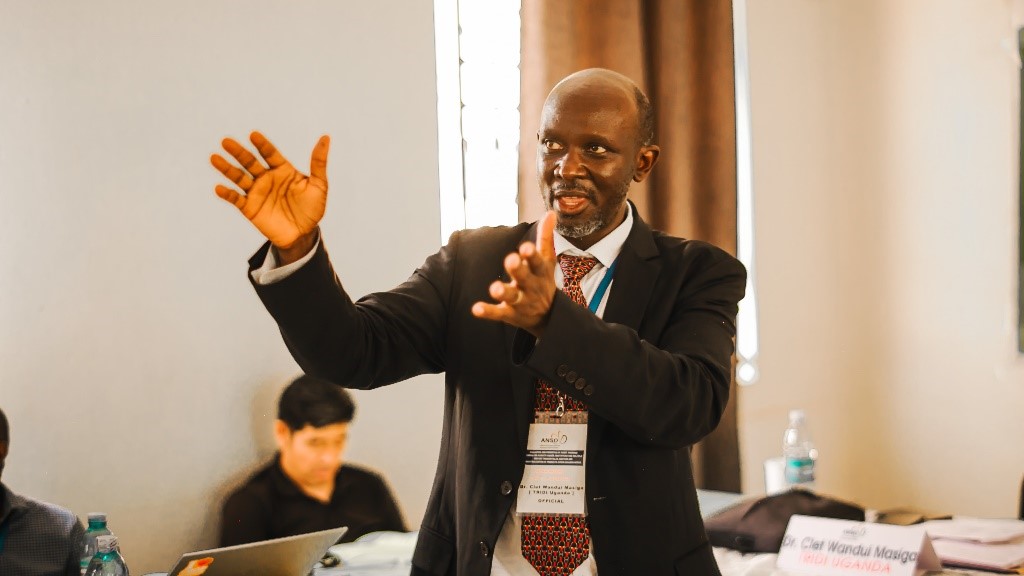
A critical session was dedicated to Advancing Genomics Work on Striga Resistance Genes, with Prof. Abdalla Mohammad providing an in-depth exploration of current research efforts to combat the parasitic weed Striga, a major challenge for sorghum production.
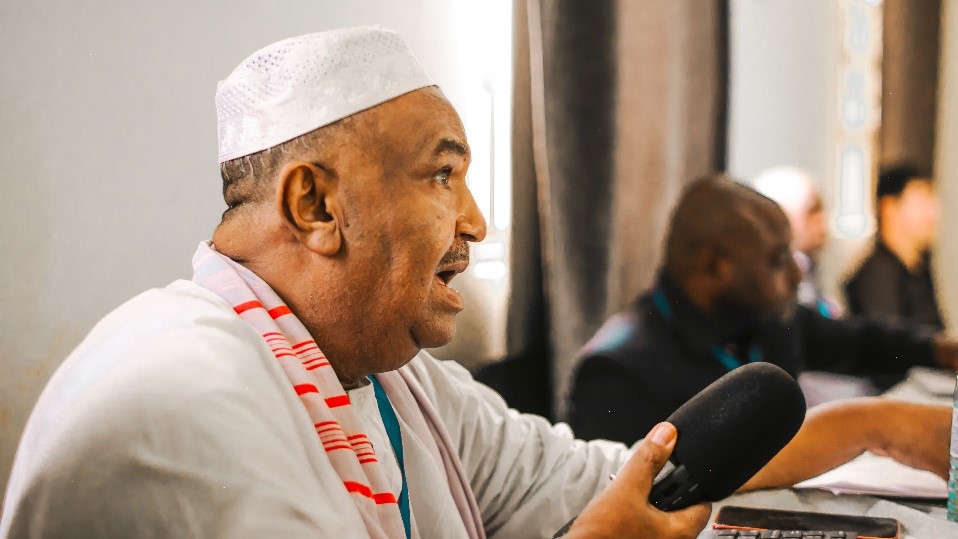
The meeting also included a strategic discussion on the way forward for the next phase of the project. This included aligning goals for the upcoming year, addressing challenges faced during implementation, and refining approaches to ensure successful outcomes in the subsequent phases.
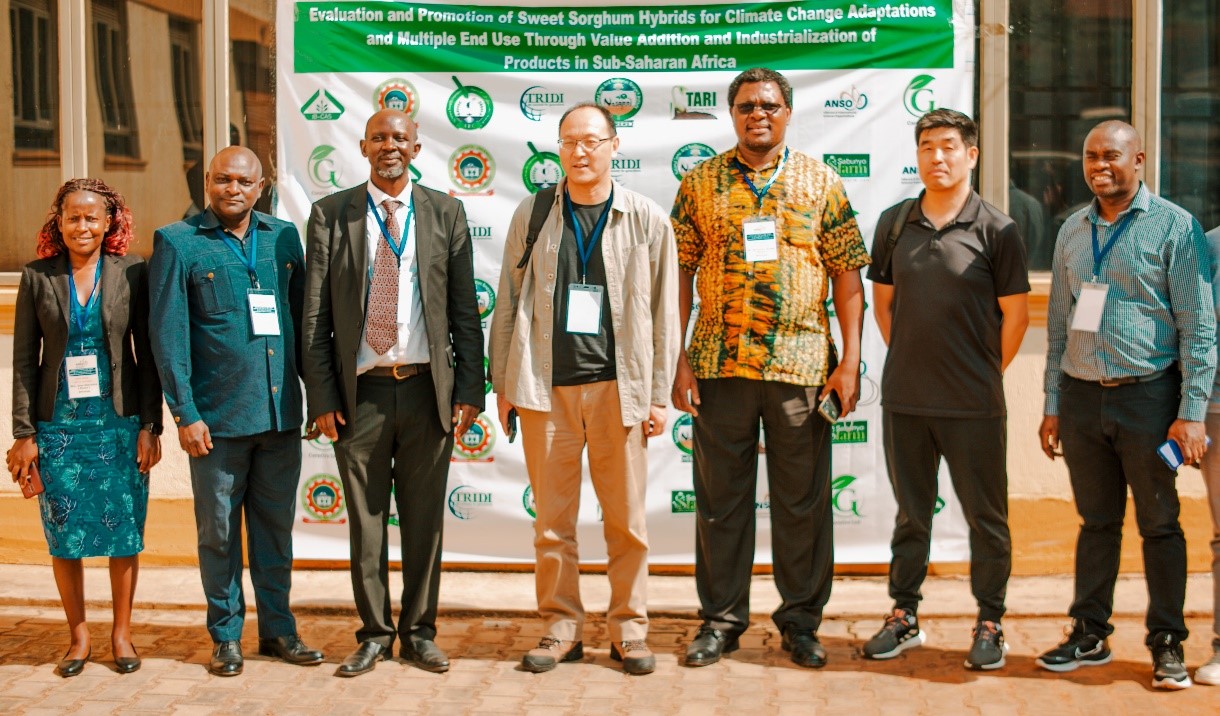
As part of the review process, participants engaged in a “Seeing is Believing” field visit to Kayunga, Uganda, on February 5, 2025. This visit allowed stakeholders to observe the current status of the TRIDI-implemented project, evaluate ongoing efforts in sorghum cultivation, and interact directly with local communities benefiting from the project.
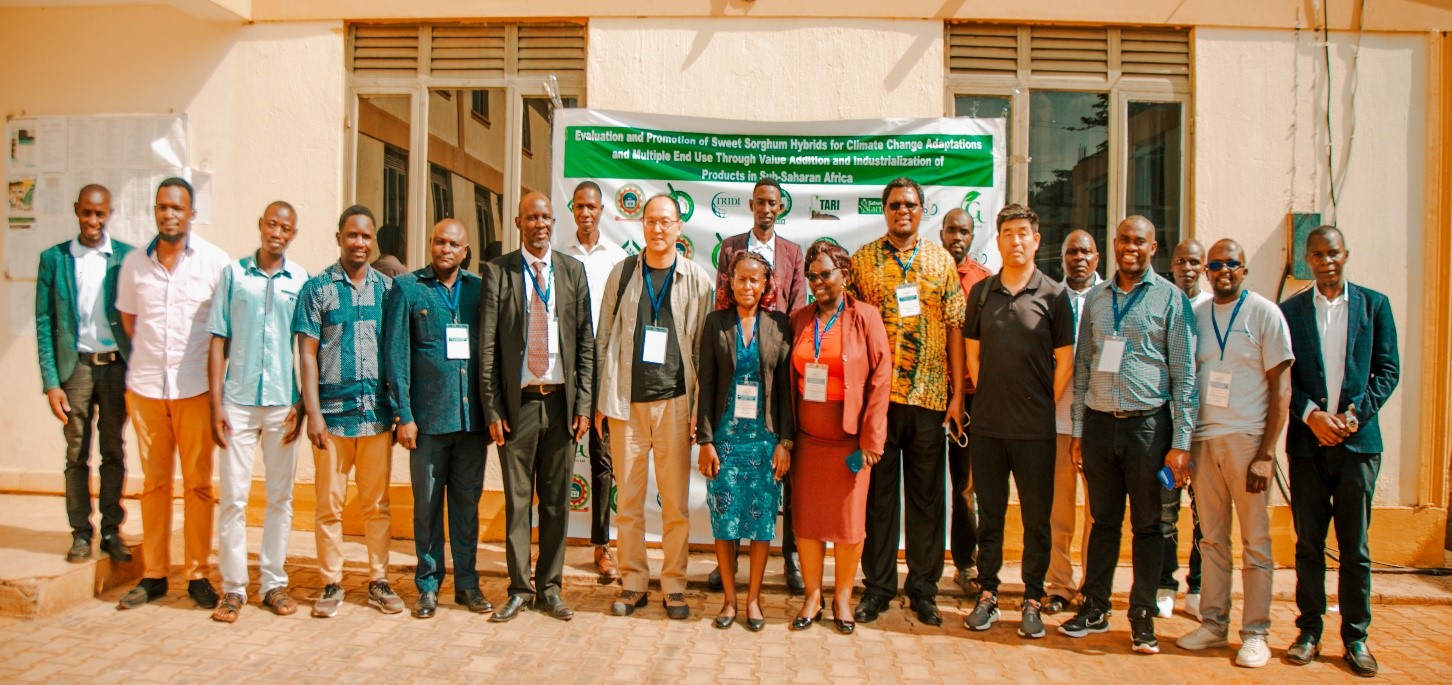
This collaborative event served as a platform for cross-border knowledge exchange, fostering stronger relationships between researchers and practitioners in Africa and China. The findings from the Year One Review meeting underscore the significant potential of sweet sorghum as a critical crop for climate change adaptation, rural development, and industrialization in Sub-Saharan Africa.
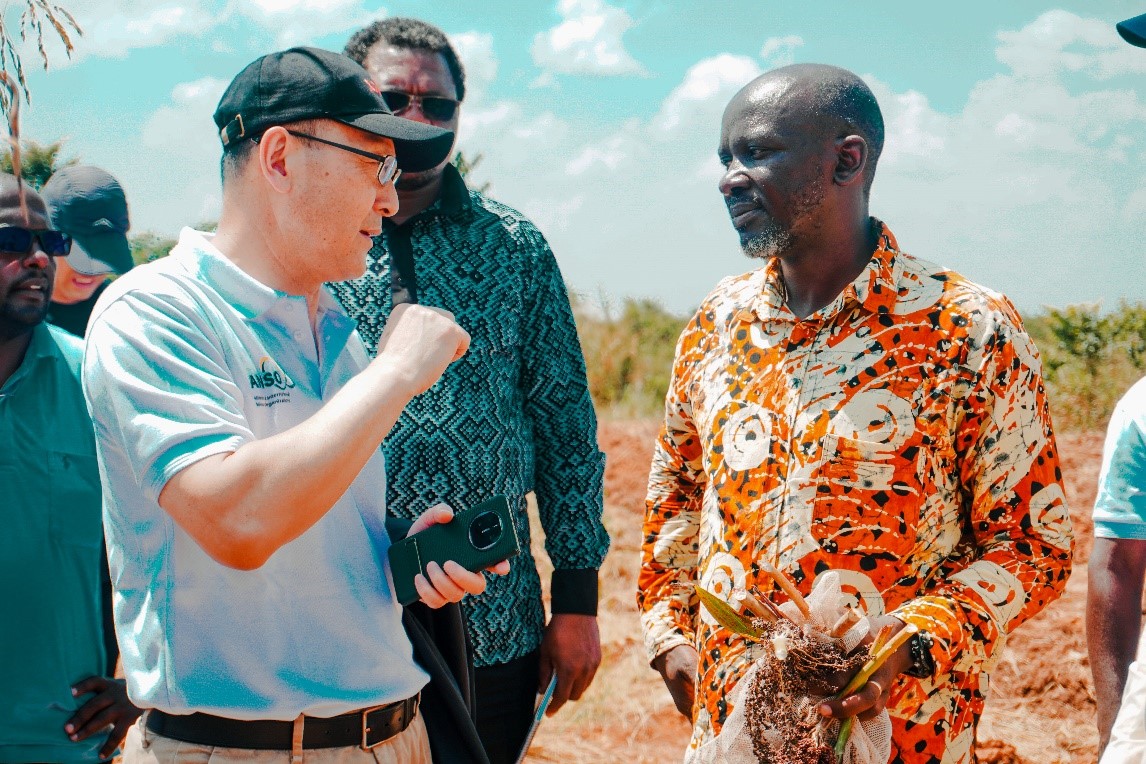
The project demonstrates significant potential for enhancing agricultural sustainability, food security, and technological advancement in Sub-Saharan Africa.
About the Project
Funded by ANSO, this ground-breaking initiative focuses on developing sweet sorghum hybrids that can withstand challenging climate conditions while offering multiple industrial applications.



